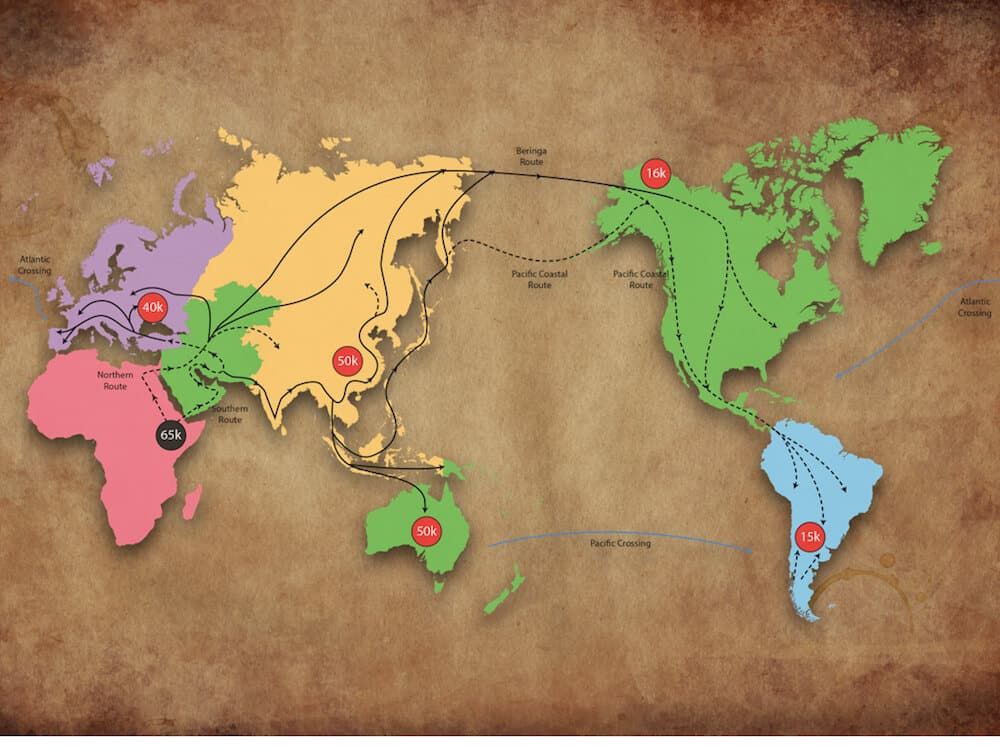Put your hand out in front of you. What do you see? Is your index finger longer or shorter than your ring finger? For centuries, depending on the length of their digits, people have classified themselves into archetypes with defined personality traits. Does this classification hold up in today's day and age, where research and science are the final authority? Could the size of your ring finger indicate your tendency for traits like risk-taking or assertiveness? Read on to find out what science says.
The Long And Short Of Finger Length Ratios
Your finger length ratio is the length of your index finger compared to the length of your ring finger.
Also called the 2D:4D ratio, this measure has become controversial in scientific research.
While some research suggests the ratio is a putative marker for testosterone exposure during pregnancy, others argue that its statistics are flawed and can’t be reproduced validly.
Hormones And Finger Length Ratios
Certain conditions in the womb influence the 2D:4D ratio in the fetus.
Here’s what you need to know:
- Prenatal hormone exposure: The theory suggests that higher testosterone levels relative to estrogen in the womb lead to a slightly longer ring finger than the index finger, which is more common in males.
- Developmental timing: Generally, the critical period for this effect is during the first trimester of pregnancy, when fingers begin to form.
- Sexual dimorphism: On average, men tend to have lower 2D:4D ratios than women, although there is significant overlap between the sexes.
However, critics argue that this measure is simplistic and not statistically valid.
Some even contend that this area of study has irreproducible findings.
What Does It Mean When The Ring Finger Is Longer Than The Index Finger?
If your ring finger is longer than the index finger, you have a low 2D:4D ratio.
Some studies say this may be due to a greater prenatal exposure to testosterone.
Consequently, this could also impart further “masculine” traits to people with longer ring fingers and more “feminine” traits to people with longer index fingers.
A longer ring finger may also be associated with better athletic performance, cognition, and risk-taking behavior.
We’ll learn more about this in a while.
How Genes Play A Role
Research suggests that genetic influences account for about 60-70% of the variability in the finger length ratio.
The SMOC1 and LIN28B genes essential for early limb development may be responsible.
A study conducted by Cambridge University found a variant in the SMOC1 gene.
One form of this variant was associated with a longer ring finger, and the other with a longer index finger.
Some reports suggest the influence of testosterone and estrogen levels in controlling the activity of this gene.
Does Finger Length Affect Other Traits?
Finger Length And Cognitive Health
Two studies presented at the Alzheimer's Association International Conference explored the link between digit length and cognitive impairment or dementia in older adults.
The study reported that females with longer index fingers scored higher on cognitive tests at younger ages, consistent with better verbal abilities.
Older females with longer ring fingers performed better than those with longer index fingers.
However, the study found no statistically significant differences for men.
The results suggest that prenatal testosterone exposure may help preserve cognition in older women, potentially reducing their vulnerability to Alzheimer's disease.
However, there are several limitations of this study:
- They rely on indirect measurements of prenatal hormone exposure, which may introduce inaccuracies.
- The findings are primarily significant for women, limiting generalizability to the entire population.
- The focus on older adults doesn't account for lifetime environmental and lifestyle factors influencing cognitive health.
- The studies show correlation rather than causation
- The study focuses on a single factor, simplifying the complex landscape of cognitive health.
Self-reporting biases, potential confounding variables, and the lack of longitudinal data further limit the robustness of the conclusions.
Finger Length And Athletic Potential
Though not fully proven, some experts believe that the 2D:4D ratio (index finger to ring finger) can be used to predict athletic prowess.
A study has reported that teenage boys with a longer ring finger (lower 2D:4D ratio) have better hand grip strength.
A finger length ratio expert conducted a study in 2024 examining the relationship between finger length and oxygen consumption (an indicator of athletic performance).
He found that those with longer a ring finger metabolized oxygen more efficiently in a cardio test.
Finger Length And Assertiveness In Females
A study investigated finger length ratios and their link to “masculinity” and “femininity” in nearly 1000 women.
The analysis revealed that women with shorter index fingers were more likely to describe themselves as ‘assertive and competitive.’
However, this study had significant limitations:
- The participants were asked to measure their own fingers, which could have rendered data collection inconsistent.
- A two-tail test deemed the results insignificant, indicating a weak statistical foundation for the conclusions.
- The study was a one-time assessment rather than a longitudinal study.
Finger Length And Risk-taking
A study used data from an extensive population survey to decode the association between finger length ratio and risk behavior.
Here's what they found:
- People with longer ring fingers tend to be more willing to take risks.
- People with longer index fingers tend to play it safe more often.
The researchers found this pattern in both men and women and for both hands.
However, the connection isn't solid - it's just a small tendency, not a rule that applies to everyone.
Do Men Typically Have Longer Ring Fingers?
The size of men's hands has been a subject of scientific inquiry and widespread speculation.
While some claims about hand size are based on myths or unfounded assumptions, researchers have studied a few aspects scientifically.
Here's a comprehensive overview:
| Trait | Correlation |
| Hand Size & Height | Taller individuals generally have larger hands |
| Hand Size & Grip Strength | Larger hands are often correlated with better grip strength. However, muscle mass and training can also make a difference. |
| Hand Size & Testosterone Levels | Some studies say more testosterone equals larger hands. This relationship needs to be studied further. |
Common Myths And Misconceptions
While studies have shown that finger ratio can affect other traits, there are many myths surrounding this topic.
Some of these misconceptions to watch out for include:
Relation To Genital Size
- The popular belief that hand size correlates with penile length is not supported by scientific evidence.
- Studies have found no significant correlation between hand size and genital size.
Relation To Intelligence
- One previous study has studied finger length to a slower cognitive decline in old age.
- However, no scientific evidence links finger size to intelligence and reasoning.
Relation To Chivalry
- One study attempted to establish a link between longer ring fingers and better interactions with women.
- While it showed a positive correlation, it wasn’t a strong link and needs further investigation.
Relation To Faithfulness
- Scientists surveyed 600 people to study the link between hand size and loyalty.
- They noted that people with longer ring fingers were more likely to cheat.
- The study assumes that these people simply have more testosterone and didn’t produce firm scientific proof.
Summary: Ring Finger Longer Than Index Finger
- The ratio of your index finger to your ring finger is also known as your 2D:4D ratio.
- Prenatal exposure to testosterone and estrogen likely influences the actual lengths of these digits.
- The SMOC1 and LIN28B genes affect limb development and could play a role in establishing finger length ratios.
- Scientists have studied the links between finger length and traits such as assertiveness, athletic performance, risk-taking tendencies, and cognitive performance.
- The findings of the studies need to be more statistically significant to establish a firm link.
- It’s believed that men often have longer ring fingers, but this isn’t true in every case.
- Some misconceptions link finger ratios to genital size, intelligence, chivalry, and faithfulness, but no evidence supports them.
Others Are Also Reading

The Link Between Vitamin D And Raynaud's Disease

5 Things You Should Know Before Buying Xcode Life

How Far Back Do Ancestry DNA Tests Go?
References
https://udel.edu/~mcdonald/mythfingerlength.html
https://www.23andme.com/topics/traits/finger-length-ratio
https://www.lesmills.com/us/fit-planet/health/finger-length
https://www.livescience.com/49883-finger-length-in-men.html
https://www.sciencedirect.com/science/article/abs/pii/S0191886914006400




